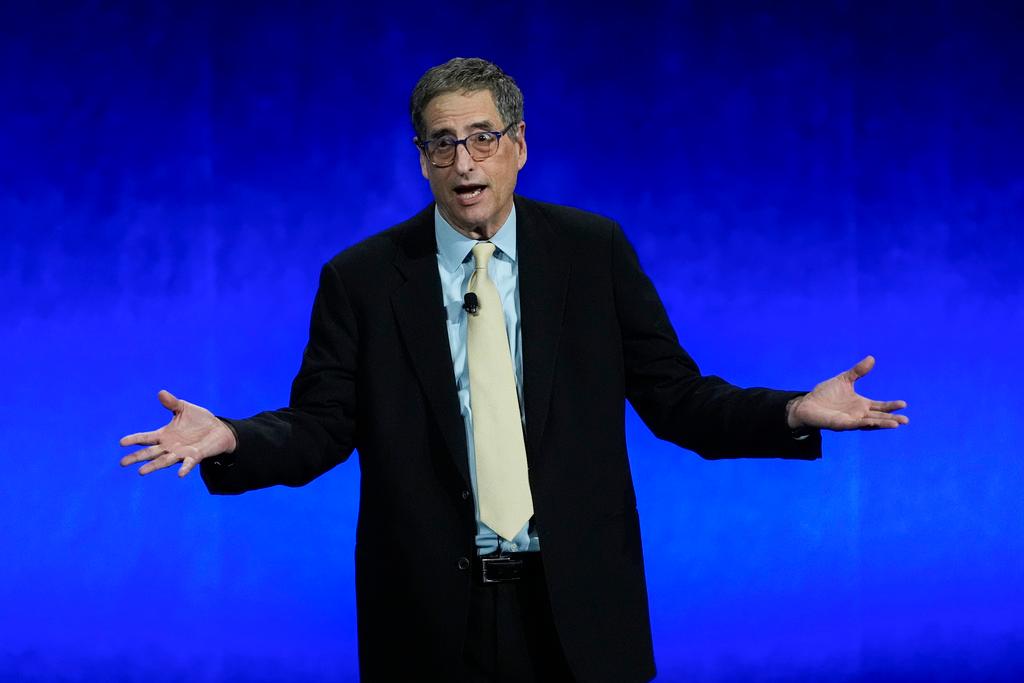
When you create a comic book, you need a hero -- or four.
And in the new comic book series "Empowerment Saga," due out this summer by Native American artist Rose Red Elk, they take many forms.
"These four birds, these shape shifters, are superheros with great powers," Red Elk says."
"There's bank robbers. There's loan sharks. There's gang members," Red Elk says. "They time travel."
The U.S. Department of the Interior and Office of the Special Trustee for American Indians commissioned Red Elk to write these stories with a moral in mind: They aim to teach Native American teens on reservations how to be responsible with their money.
 Growing up outside her culture
Growing up outside her culture
Unlike her characters in "Empowerment Saga," Red Elk didn't grow up on a reservation. She and her mother left Montana's Fort Peck Indian Reservation and moved to Texas when she was 2 years old.
"I used to ask my mother about it," Red Elk says. "She just said she couldn't speak the language. She just said to always be proud of being an Indian. So she instilled the pride, but she didn't teach me anything."
Red Elk's mom was Assiniboine and her father's ancestry was Lakota. Both originated in the North American Plains.
Red Elk didn't have a close relationship with her father. He was an alcoholic and absent for much of her childhood, she says. But he played the guitar, and Red Elk says she inherited her musical gene from him. When she turned 8, she got a portable organ for Christmas.
"I loved the 'Sound of Music,' and I knew all the songs," Red Elk says. "I would sit at my organ and I would play them."
Understanding her heritage through art
Red Elk grew up on rock n' roll and folk music: The Beatles, Elvis Presley, Simon and Garfunkel. Like her father, she eventually took up the guitar.
As she got older, she started to ask him about their Lakota heritage. At 20, Red Elk went to her first powwow, a Native American ceremonial celebration that she describes as life changing.
"That was so powerful to see these dancers and hear the drums," Red Elk says. "You could feel the ancestors. It was very very moving."
Red Elk says her ancestors started coming to her in her dreams, and they guided her through two marriages, three college degrees, and raising four children mostly on her own. It was during her mid-30s, while working on her third degree at Texas A&M University, when she really connected with her heritage and storytelling.
A warrior of emotional battles
Red Elk's grandfather, Joe Flying By, gave her a traditional Lakota name.
"He told my grandmother that it should be 'WE-YAH-KAH LUTAH WIN-YA,' which means, 'Red Feather Woman,'" Red Elk says.
Flying By told her she was a warrior, and she had earned the name for enduring her emotional wounds. An elderly woman -- a stranger to Red Elk -- picked up on these emotional scars during what the artist calls a spiritual intervention.
At 40, Red Elk was trying to get into law school in Colorado while working at IBM. This stranger's vision gave Red Elk the courage to leave her job and pursue music.
"She said that I had songs to write," Red Elk says, emotion cracking her voice. "To remember it, especially from a stranger. And to have that kind of faith to take the leap, to leave a secure job and pursue the dream."
Telling stories and making music
Red Elk learned the music industry on her own. And she struggled. The musician lost thousands of dollars on her first attempt at recording an album. She also got romantically involved with one of her early producers, and the relationship ended badly.
None of that discourages her as she straddles two cultural worlds. Her songs blend folk influences and Native storytelling. There's a reverence for Mother Earth and a deep rooted respect for personal heritage.
Her song "Keeper of the Dreams" won Red Elk her second Native American Music Award last fall for "Best Folk Performance."
Now 60-years-old, Red Elk dabbles in all sorts of art. She has three albums out. She's written a collection of short stories called "Medicine Stories." She crafts her own dream catchers, and is now the author of a comic book series.
"Storytelling is a way of our culture that has been handed down for centuries and centuries," Red Elk says.
Eric “Many Winds” Herrera has known Red Elk for more than a decade. He's often shared the stage with her and says they are kindred spirits who've supported each other through tough times.
"Rose is a very strong woman," Herrera says. "She knows who she is. I think she really has a firm grip on where she wants to be.”
Red Elk says she's not sure what's next for her. And she's ok with that. One day, though, she says, she'd like to win what many musicians dream of: a Grammy.









